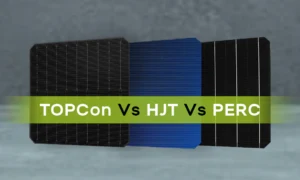In the digital age, blacked-out text often serves as a veil of secrecy, concealing sensitive or confidential information. While this practice aims to protect privacy and adhere to evolving legal or regulatory requirements, it can also pose a challenge for those seeking to decipher the hidden message. Whether driven by curiosity, research purposes, or legal investigations, the ability to unmask blacked-out text can be of immense value.Read the article to get to know how to uncover blacked-out text.
The Ethical Dilemma: Balancing Privacy and Curiosity
Before embarking on any attempt to uncover blacked-out text, it is crucial to consider the ethical implications involved. In certain cases, such as when dealing with personal information, unblackening text may violate privacy laws or ethical codes. It is essential to exercise caution and respect the boundaries of privacy and ethical conduct.
Ethical Considerations for Unblackening Text
- Purpose and Intent: The purpose behind unblackening text is a critical factor to consider. Is it driven by genuine curiosity or a desire to protect oneself or others from potential harm? Or is it motivated by malicious intent or a desire to invade someone’s privacy?
- Nature of the Information: The nature of the information concealed beneath the blackening plays a significant role in the ethical assessment. If the information is sensitive or confidential, unblackening it may violate privacy norms and ethical principles.
- Legal Implications: Unblackening text may, in certain cases, violate legal provisions, particularly when dealing with protected information or documents subject to confidentiality agreements or non-disclosure agreements.
Navigating the Legal Landscape: Permissible Unblackening
While unblackening text may raise ethical concerns, there are instances where it may be permissible, even necessary. These include:
- Self-Defense or Protection of Others: If blacked-out text contains information that could pose a threat to one’s safety or the safety of others, unblackening it may be considered a justifiable action.
- Compelled Disclosure in Legal Proceedings: In certain legal proceedings, such as criminal investigations or civil lawsuits, unblackening text may be required by law or court order to uncover evidence or support a case.
- Public Interest and Whistleblower Protection: In rare instances, unblackening text may be considered ethical if it serves a greater public interest, such as exposing wrongdoing or protecting the public from harm. However, such actions must be carefully considered and weighed against potential legal and ethical repercussions.
Conclusion: A Balancing Act
Unveiling hidden messages concealed by blacked-out text requires a delicate balance between curiosity, ethical considerations, and legal boundaries. While the desire to uncover hidden truths is understandable, it is essential to prioritize privacy rights, ethical principles, and the potential legal consequences of unblackening text. Only in exceptional circumstances, where the potential benefits outweigh the potential harm, can unblackening text be considered an ethically justifiable action.tunesharemore_vert






